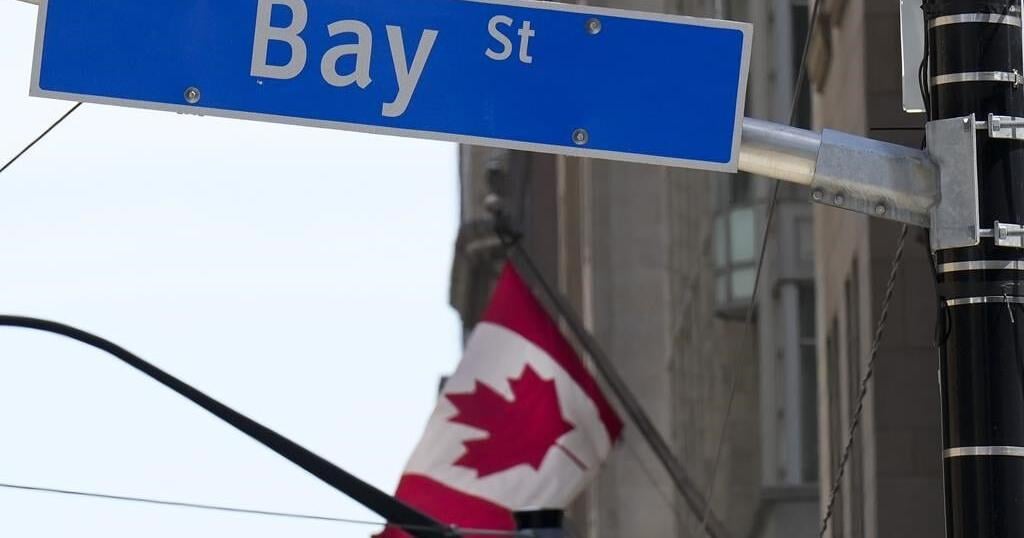It has now been nine days since the NBA suspended its season, which in hindsight was the turning point for the COVID-19 crisis in North America. In the past week, the pandemic has been causing business, market and economic turmoil like we’ve never seen, and Financial Post reporter James McLeod is maintaining a live blog of updates. The National Post is also doing a liveblog with general news updates, so check that out.
Refresh this page regularly for fresh information throughout the day, and if you have business-specific tips, announcements and information that should be included here, please email jmcleod@postmedia.com.
3:35 p.m. — Competition Bureau watching for scams and price fixing: Competition Bureau commissioner Matthew Boswell, said that the Bureau is still on the job amid the COVID-19 pandemic.
“As Canada responds to the COVID-19 coronavirus situation, I would like to assure Canadians that the Competition Bureau remains vigilant against potentially harmful anti-competitive conduct by those who may seek to take advantage of consumers and businesses during these extraordinary circumstances,” Boswell said.
In particular, he said Canadians who see evidence of price fixing or scams claiming to offer a cure or treatment to COVID-19 should contact the Bureau.
3:19 p.m. — Markets in the red heading toward close: With less than an hour left for traders before the weekend, the Dow Jones Industrial Average, the TSX/S&P composite and the Nasdaq are all in the red.
In Toronto, the TSX is down 201 points, or 1.65 per cent. The Nasdaq is down 191 points, or 2.68 per cent and the Dow has fallen 632 points, a decline of 3.15 per cent.
This morning, all these indexes were in positive territory, but the past week has been remarkably volatile, as investors grapple with the unfolding COVID-19 pandemic, and associated economic upheaval.
2:02 p.m. — Shopify offering resources and advice to small business: Ottawa-based e-commerce platform Shopify Inc. has more than a million merchants using their service, so the company has been aggregating business resources and advice for companies struggling in the face of economic turmoil.
The company has launched a COVID-19 page here. The company is also saying it will make $200 million in loans available to merchants through the Shopify Capital program.
1:55 p.m. — U.K. subsidizing 80% of wages: There’s quite a bit of chatter on Twitter right now about U.K. Prime Minister Boris Johnson’s economic announcement today. This thread offers a bit of info.
Specifically, this from the U.K. Chancellor of the Exchequer: “Government grants will cover 80% of the salary of retained workers, up to a total of £2,500 a month, that’s above UK median earnings level.”
There’s already been a lot of reaction to the federal government’s economic rescue package so far, saying it’s not nearly big enough, so the U.K. covering 80% of wages will likely only intensify that sentiment.
1:25 p.m. — CAD is chained to oil: TD: In a new research note released Friday, TD Economics looks at the Canadian dollar’s plunge in value, and essentially concludes that Canada is along for the ride with world oil prices. The dollar is trading at around 0.69 U.S. cents
The CAD has dropped 12 per cent against the US dollar, despite the fact that Bank of Canada interest rates are higher than the Federal Reserve in the U.S.
“On the positive side, it is unlikely that the world price of oil will continue trading at current levels indefinitely,” TD wrote. “Breakeven prices based on operating costs for production of existing wells are well above current levels in most countries. Also, the USD is currently in high demand as a safe haven in the risk-off environmnet”
1:16 p.m. — TSX up, Dow down: The TSX/S&P composite is up about 2.3 per cent or 283 points right now, and the Dow is down about 114 points, or 0.57 per cent. With the enormous volatility in the markets over the past week, I’ll be keeping an eye on the indexes through to market close today.
1:00 p.m. — Masks, ventilators, hand sanitizers in high demand: While talking about procurement and Canadian manufacturing capacity, federal ministers repeatedly indicated that ventilators, protective masks and hand sanitizer are among the key items to support the health care workers fighting COVID-19.
The ministers said that Ottawa is attempting to buy these products, but because they come from global supply chains, Canada is competing with all other countries to acquire these items. Innovation Minister Navdeep Bains has said that the government is working to get Canadian businesses to retool their operation to make these items.
12:55 p.m. — COVID-19 like a war effort: Treasury Board President Jean-Yves Duclos said that the federal government response to the pandemic virus is akin to a war effort, and the federal government wants to orient Canadian manufacturing to help the health care sector fighting the disease.
Federal officials are calling on business to get in contact if they have ways to help making medical supplies.
12:40 p.m. — Companies step up to fight COVID-19: Federal Procurement Minister Anita Anand said that 5,800 companies have contacted the government offering to help providing supplies to fight COVID-19.
12:36 p.m. — Feds sign letters of intent to get business working on COVID-19 supplies: Innovation Minister Navdeep Bains announced a suite of measures to shift funding towards COVID-19 research and innovation issues, and the federal government has signed letters of intent with three companies to scale up production of key supplies.
Bains said Montreal company Medicom has stepped up to produce N95 masks, and Thornhill Medical is producing ventilators. He mentioned a third company but I missed it on the livestream. I will update this post as soon as I get those details.
Bains also mentioned the Auto Parts Manufacturing Association of Canada, which is committing to temporarily retool some of their facilities to make a range of products.
11:51 a.m. — Walmart Canada hiring 10,000 workers: In a post online, Walmart Canada says they’re hiring 10,000 people to keep stores open during the COVID-19 pandemic. The retailer is also moving to implement a system where the first hour after opening is reserved for senior citizens and people with disabilities.
11:40 a.m. — Kraft Dinner production crunch: There is a Montreal factory working around the clock to produce 400 boxes of Kraft Dinner every minute to keep up with the country’s demand. Just an excellent story by FP reporter Jake Edmiston.
11:25 a.m. — Manufacturing ventilators: Trudeau said that he’s confidence Canadian companies will be able to respond to the demand for more ventilators to address the COVID-19 illness.
“We know that Canadian companies are among the most innovative and agile in the world,” he said.
11:22 a.m. — Government support for retooling: Prime Minister Justin Trudeau said that there will be federal government financial support to allow manufacturers to retool factories to make hand sanitizer and other medical supplies to fight COVID-19. More detail will be provided when ministers hold a follow-up news conference at noon.
11:18 a.m. — Border shutdown at midnight: Prime Minister Justin Trudeau says the Canada-U.S. border will close to non-essential travel at midnight. He also said that they have an agreement with the U.S. to send back all irregular border crossers, something that the Conservative Party has been raising as an issue in the past few days.
11:08 a.m. — Barrick Gold still mining: In a news release, Toronto-based mining company Barrick Gold said mining operations are continuing, in spite of the COVID-19 pandemic.
“The corporate executive and site management teams engage continuously to monitor the situation and daily updates are received from each of the sites and offices,” Barrick said in the release.
“All non-essential business travel has been suspended and non-essential projects have been curtailed. In line with directives from our host governments and the international health authorities, we have put measures in place to mitigate the risk of infection while ensuring a safe environment for operations to continue as usual.”
Check out Gabriel Freidman’s story in the Financial Post for a wider look at what’s happening in the mining sector, and pressure to shut down operations.
11 a.m. — Restaurants considering closing permanently: Restaurants Canada says a survey of members indicates that foodservice providers need government assistance imminently, or they risk shutting down altogether.
“Facing a new reality of little-to-no income without a clear end date in sight, more than 90 per cent of respondents said they are very worried about the next three months. Most said they need help from government,” the industry association said in an emailed news release.
Restaurants Canada called for flexible arrangements on rent, relief from taxes, and payroll assistance for workers.
10:42 a.m. — Banks and insurance companies to do AGMs digitally: A joint statement from Canada’s major banks and insurance companies says they’ve received a court order allowing them to dispense with the normal requirement to hold an in-person annual general meeting.
The news came in a joint statement from BMO, CIBC, Canadian Western Bank, Laurentian Bank, National Bank, RBC, Scotiabank, TD Bank, Great-West Lifeco, Canada Life, Manulife and Sun Life.
From the news release: “In line with the latest directives from public health and government authorities, we have jointly obtained a court order that allows us to hold our annual meetings, in whole or in part, using electronic means. The order permits our meetings to be conducted over one or more of webcasting, teleconference or other electronic means, in each case in addition to, or instead of, an in-person meeting, and permits alternative means for distributing meeting materials. The order was obtained because Canadian banks and insurance companies are not permitted to conduct an electronic annual meeting in lieu of an in-person meeting without relief from the court.”
10:30 a.m. — Trudeau to speak at 11:15 a.m.: Once again, Prime Minister Justin Trudeau will be speaking to the media at 11:15 a.m. outside his residence in Ottawa. He will be taking questions.
Following that media availability, Deputy Prime Minister Chrystia Freeland is scheduled to hold a news conference with various ministers at noon today.
There has been a lot of chatter about using idle manufacturing capacity to make ventilators, hospital gowns, face masks and other medical supplies to fight the pandemic. Government officials may have details to share on that front today.
10:19 a.m. — CFA Institute cancels exams: In a post on their website the CFA Institute announced that June exams will be postponed due to the COVID-19 pandemic, and the requirement for social distancing.
You can read the full post here from the CFA Institute.
10:08 a.m. — U.S. Senators accused of insider trading: Not a Canadian story, but worth keeping an eye on an unfolding situation in the United States where multiple Senators are accused of making major stock transactions after receiving confidential briefings on the severity of the COVID-19 pandemic. Here’s the NY Times story on the situation.
As the U.S. grapples with the pandemic, and major disorganization at the federal level, it could be important to watch these corruption allegations.
9:55 a.m. — Markets open, TSX up, Dow down: After a brief uptick, the Dow Jones Industrial Average dropped in early trading Friday morning. The TSX/S&P composite is up about 2 per cent in early trading. I’ll be keeping an eye on this and posting regular updates throughout the day.
9:35 a.m. — Posthaste roundup: Check out the regular Posthaste morning roundup for what to keep an eye on today, but I want to draw your attention to one item in particular, because it could have a big impact on the markets:
As if investors didn’t have enough to worry about, today is quadruple witching day. This quarterly event in which investors unwind positions in futures and options contracts before their expiration has been know to cause mayhem at the best of times.
“Even in the sleepy times in the market things get weird on quadruple witching days,” Kim Forrest, chief investment officer of Bokeh Capital Partners told Bloomberg. “It’s going to be nuts. It’s icing on the icing.”
Today could be a wild ride.
9:27 a.m. — Canadian Natural pay cuts: Financial Post energy reporter Geoff Morgan was really good at his job before the crisis, and he’s been an essential source of information on the Alberta oil and gas sector. Here’s a story from Geoff about Canadian Natural handling the crash in oil prices by slashing spending and cutting salaries.
From the story: “Canadian Natural president Tim McKay’s salary is being cut 20 per cent, other members of the management team will see a 15 per cent pay cut and all vice-presidents will have their pay cut 12 per cent.”
9:11 a.m. — Car manufacturers ready to make ventilators: An interesting business angle on the COVID-19 situation to watch is how business is coming together to help address the crisis. Here’s a great story from FP reporters Emily Jackson and Naomi Powell about how auto manufacturers are looking at retooling their manufacturing lines to build vital medical equipment.
Various government officials were talking about this yesterday, so it’ll be interesting to see what sort of action we see on this front in the next week or two.
8:55 a.m. — Air Canada layoffs:More than 5,000 flight attendants have been laid off as Air Canada struggles to deal with the travel disruptions of the COVID-19 pandemic. The layoffs take effect in April, and that represents about 60 per cent of the airline’s flight attendants.
8:52 a.m. — Big changes at Loblaws: Yesterday Galen Weston, executive chairman of Loblaws Companies, announced significant changes to how the grocery chain will be operating during the pandemic. Weston posted a concise video message on Twitter and the company sent out an email to PC Optimum customers.
Here are the key points:
“We are reducing operating hours in our stores – for rest and sanitization (check online for details), we are modifying our service counters to have more pre-packaged product – for less touching, (and) we will begin limiting the number of customers allowed in our busiest stores at the same time – for social distancing.”
This comes as grocery stores have been particularly hard hit by the pandemic, and government officials have been trying to assure people that supply chains remain intact, and there is no need to hoard food.
8:45 a.m. — Another Great Depression?: Here’s a bleak story from Financial Post reporters Geoff Zochodne and Victor Ferreira about the economic ramifications of the pandemic.
Smart people are saying the long-term consequences could be comparable to the Great Depression. Read the story for details.
March 19, 2020
Good morning! Today is shaping up to be yet another hectic day of business news, as North America continues to grapple with the consequences of the COVID-19 global pandemic. Prime Minister Justin Trudeau is scheduled to speak to Canadians again, outside his residence where he’s in self-quarantine. Keep refreshing this page as we bring you business updates and market news throughout the day.
• Email: jmcleod@nationalpost.com | Twitter:























